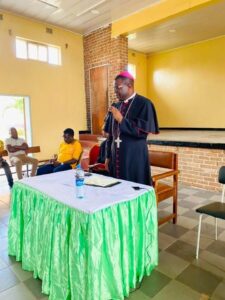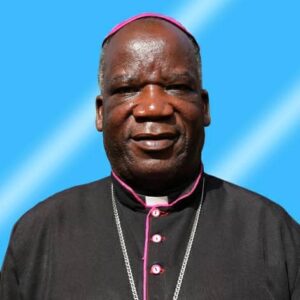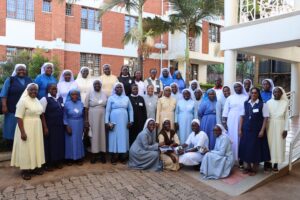AMECEA: “Social Accompaniment Equally Important,” says Secretary General as AMECEA Develops Chaplaincy Manual
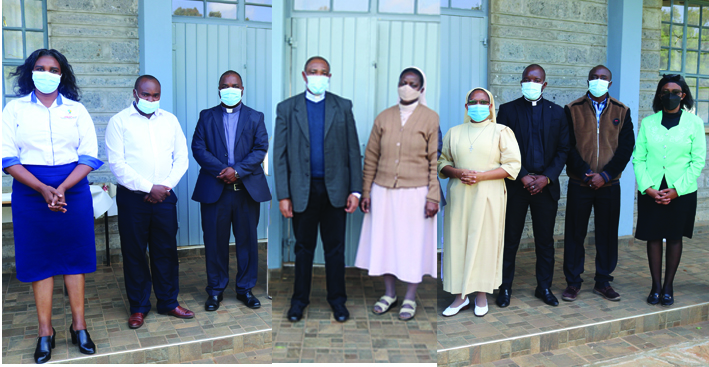
A team Developing Chaplaincy Manual
Sr. Jecinter Antoinette Okoth, FSSA
As the Association of Member Episcopal Conferences in Eastern Africa (AMECEA) through its Pastoral department reviews the zero draft of Chaplaincy manual developed by a team of experts within the region, AMECEA Secretary General has reminded the developers of the need to emphasize social accompaniment which is as equally important as spiritual accompaniment.
“Besides spiritual accompaniment, we must be aware that social accompaniment of individuals and various groups in society is equally important as a chaplaincy ministry,” Fr. Anthony Makunde told the team reviewing the zero-draft manual during the opening of a four-day workshop at Donum Dei in Nairobi, Monday, August 2.
“When we hear about the number of suicide cases increasing in the society as a result of various challenges people face, we get to appreciate the need for accompaniment,” Fr. Makunde shared with the participants drawn from various sectors from Kenya and Malawi including youth representative, chaplain and experts from government and civil society.
He continued, “Accompaniment is wide and broad; it also involves issues of economic development. This tells us that through our efforts to come up with this manual, we shall help the society to grow into full maturity both spiritually and humanly.”
The Secretary General reminded the team that their mission of developing the manual is “equiv
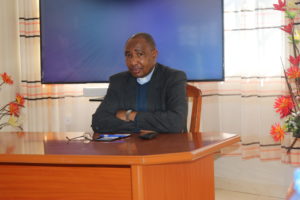
alent to planting a seed with hopes that it grows and develop fruits in the Church of AMECEA and beyond.”
Speaking on behalf of AMECEA Pastoral Coordinator Fr. Emmanuel Chimombo, the Child Safeguarding officer in the department Mr. George Thuku highlighted that the four-day workshop is aimed at reviewing the document developed in the month of May in order to improve it.
He noted that the chaplaincy manual will be of great importance in the region since “many clerics are appointed to the position of a chaplain when they have no formal training and have no document for reference.”
“This process is therefore to help us seal the gap and respond to the bishops’ request after their 19th Plenary Assembly that the region needs a Chaplaincy manual,” Mr. Thuku clarified.
The zero draft has two sections with different chapters highlighting various chaplaincy ministries.
